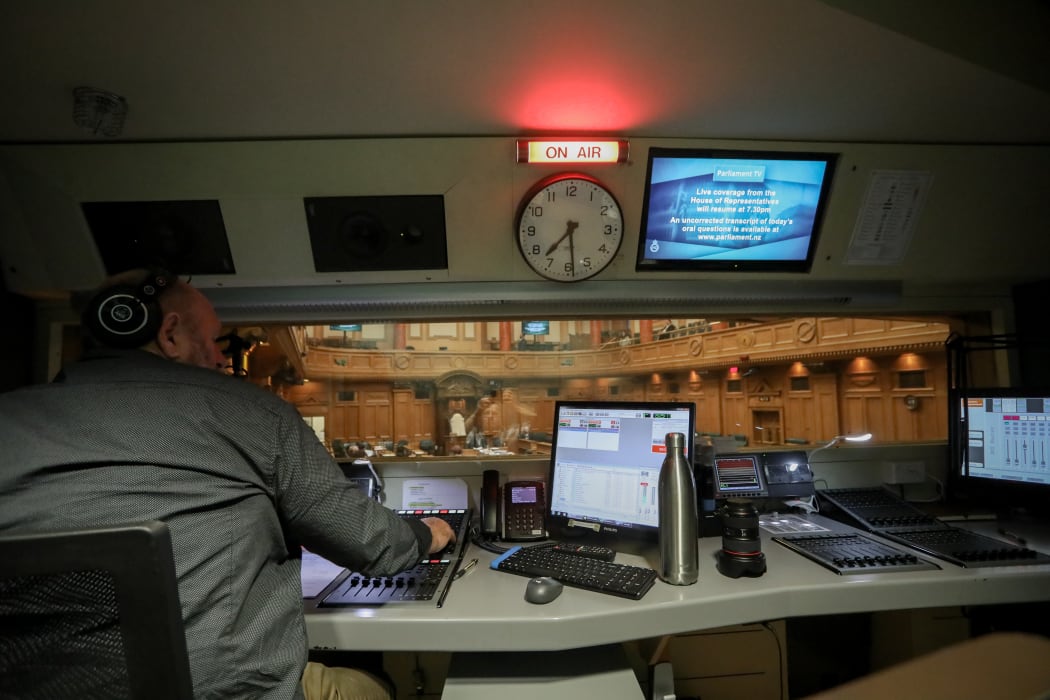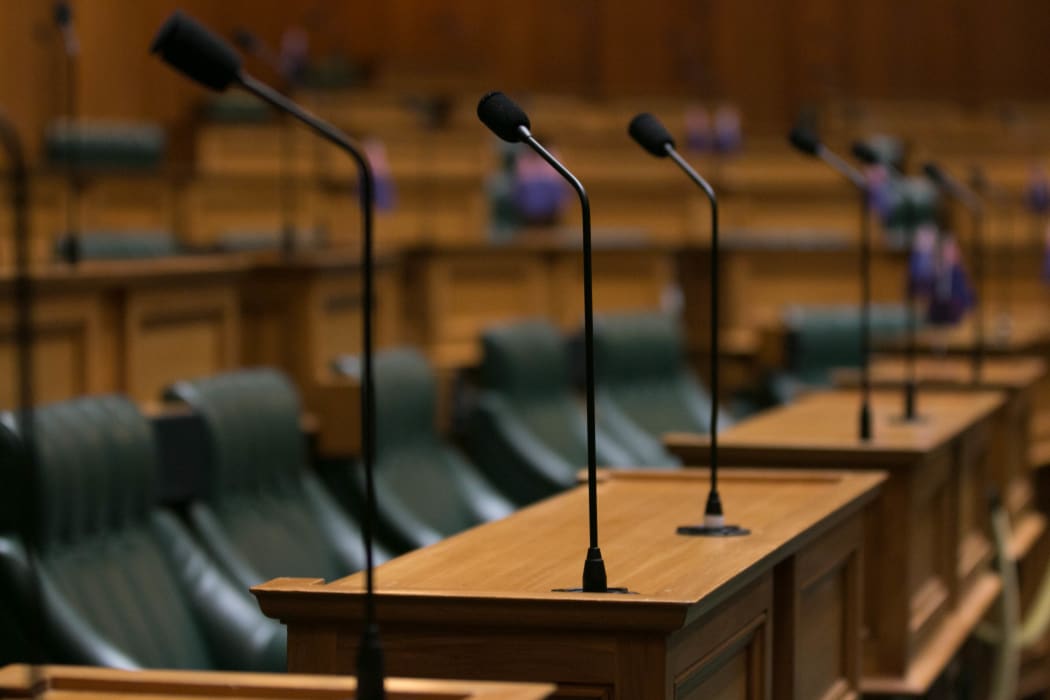Parliament was back to something close to normal today. There were a lot more MPs, a normal timetable, and as a special treat: debates over something other than Covid-19. The bills up for debate today touch on terrorism, drinking water, and car emissions.
But before they got to that MPs first had the traditional hour of grilling the Government. During Question Time there was some contention over microphones.

RNZ operator Colin Pearce leans into Parliament's evening sitting. In the audio booth he controls the debate audio for radio, TV and the chamber. Photo: VNP / Phil Smith
With more MPs in the chamber there was also more energy and more volume. Definitely more volume.
The Speaker paused the action during the Leader of the Opposition's question to the Prime Minister to ask National MP Chris Bishop to tone down his interjections to answers from Jacinda Ardern. He was, the Speaker said, coming through loud and clear on the live microphone of Judith Collins - sitting in front of him.
“I just want to make it clear to Mr Bishop. He may not be aware that his leader's mike is open and his very loud interjections, very frequent interjections… are interfering with people's ability to hear the answers, including mine. ...when the Prime Minister's being drowned out by him because he is using his leader's microphone, then it means that people outside the building have trouble hearing as well.” - The Speaker, Trevor Mallard
Chris Bishop’s interjections were undeniably loud inside the chamber, but much less so on the radio and TV. This was because he wasn’t receiving any help from his leader’s mic, it was switched off.
It’s just that some MPs have an impressive capacity to throw (or possibly even hurl) their voices. A few MPs may have missed careers as shakespearean actors, opera singers, or the more voluble WWF wrestlers.
This kerfuffle was a chance for us at the House to drag out of the archive an interview from 2017 with parliament’s two most experienced sound engineers - Colin Pearce and John McGregor.
John McGregor recalls that when he started (it was a fair while ago) there were just 18 microphones that hung from the debating chamber ceiling and none of them was very close to anyone so everyone’s interjections had a good chance of being picked up.
He says that back then the MP with the call would just out-volume the interjections. MPs were used to throwing their voices, unamplified, in country halls. A few still are.

Photo: VNP / Daniela Maoate-Cox
These days the MPs in the debating chamber each have a stalk-like microphone on their desk and at the back of the room in the audio booth the RNZ sound engineers manage 130 separate on/off buttons (arranged in a horseshoe to mirror the MP's positions), to make sure the only floor microphone currently switched on is that of the MP on their feet because they ‘have the call’.
However, one MP’s mics are always on unless they turn them off themselves. Those are the double microphones at the Speaker’s chair. Yes, he gets two; one low for sitting, one high for standing.
They are always on because whoever is presiding always has the right to speak - and their interpolations do need to be heard.
So that’s three live Mics, the MP with the call and the Speaker’s. There are just two more. High up on the wall behind the Speaker’s chair are two room mics turned down low and there to pick up the ambience. After all, it would be a pity if we missed the best sense of the gladiatorial ring.
Today, the speaker was definitely correct in one respect, it was loud in the room, and that can make it hard for MPs to hear the details (it’s much easier on the radio or TV). But after a few weeks of very low energy, low volume politics in a pretty empty room it was almost a refreshing change.


